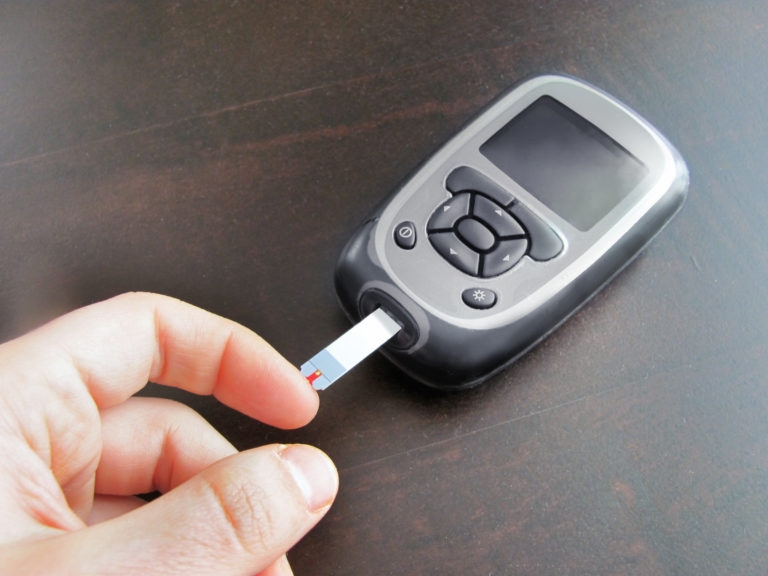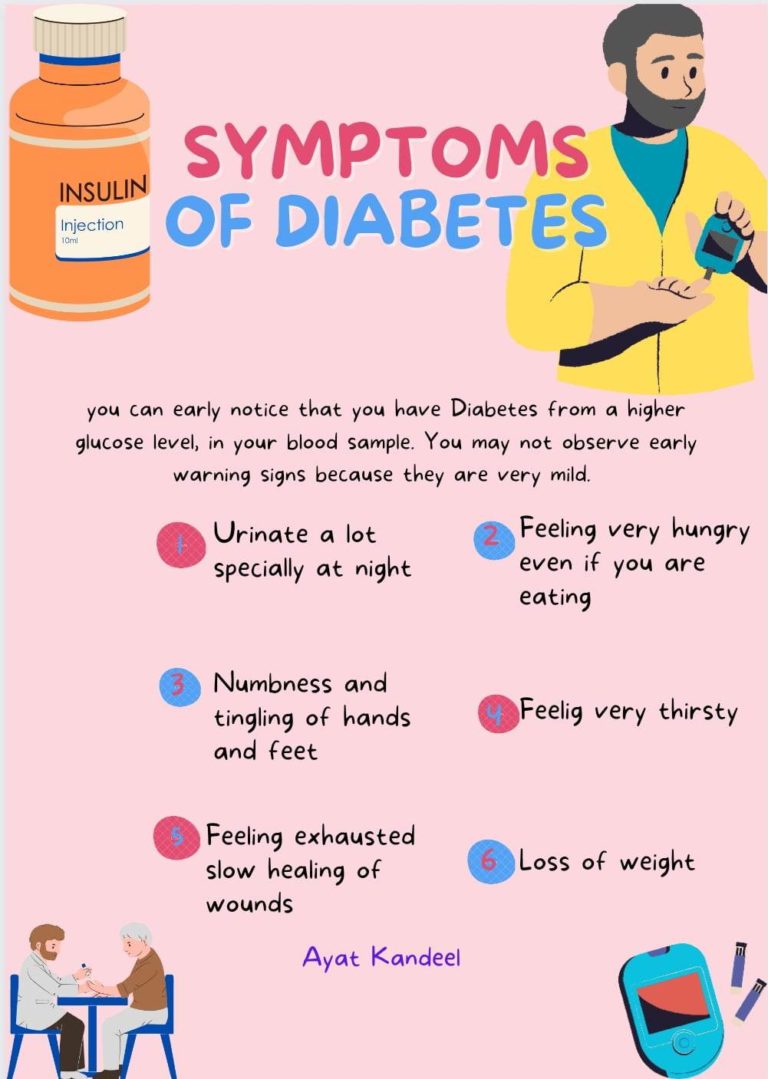10 Early Diabetes Symptoms You should notice to prevent illness worry
you can early notice that you have Diabetes from a higher glucose level, type of sugar, in your blood sample. You may not observe early warning signs because they are very mild. It is true, particularly for type 2 diabetes.
Diabetes is a familiar condition that has two types, Diabetes type 1 has a synonym called Juvenile Diabetes because it appears early in life while Diabetes type 2 affects older people.
Unfortunately, some people do not discover that they have type 2 diabetes till it causes complications.
Diabetes Symptoms
If you suffer from any of the following Diabetes symptoms, you should do a glucose blood test which is necessary. It will tell you about your glucose level in your blood.
-
1- Urinate a lot, especially at night.
2- Feeling thirsty.
3- Feeling very hungry, even if You are eating.
4- The blurring of vision.
5- Numbness and tingling of hands and feet.
6- The feeling of tiredness.
7- Loss of weight.
8- Slow healing of wounds.
9- More infections than habitual.
10- Dry skin.
-
Thankfully, early detection and treatment can help prevention of complications.
Diabetes causes
Diabetes results from an increase in glucose circulating in your blood. The cause of the increase differs according to the type of it.
Insulin Resistance
It is the most common cause of Type 2 diabetes. It means no response of cells in organs to insulin.
Many factors come up with the degree of your cell resistance such as obesity, hormonal imbalance, or deficiency of physical activity.
Hormonal imbalance
Through pregnancy, the placenta secretes some hormones that produce insulin resistance.
If your pancreas can not tolerate this change and secretes enough insulin, you will suffer from Gestational Diabetes.
Other hormonal conditions like acromegaly and Cushing syndrome can also result in Type 2 Diabetes.
Autoimmune disease
It occurs when your immune system attacks your pancreas. It attacks the Insulin-producing cells in the pancreas.
Genetic mutations
Genetic mutations result in Maturity-onset diabetes in the young (MODY) and neonatal diabetes.
Pancreatic damage
Damage to the pancreas like surgery or injury affects the efficacy of producing insulin.
Medications
AIDS long-term drugs and contortionists may lead to type 2 diabetes.
Diabetes risk factors
Type 1:
Age
It occurs at any age, but it is common to start in children, teens, and young adults.
Family history.
Type 2:
Overweight.
45 years or older.
Family history.
Some races include African American, Latino, and Asian American.
Prevention of Diabetes
There is no way to prevent Type 1 Diabetes however we
can prevent Type Diabetes by:
– applying a healthy diet.
– regular physical activity.
– adequate sleep.
Treatment of Diabetes
Because Diabetes is a compound condition, its treatment has many approaches.
Blood Sugar Monitoring
It is the indicator of follow-up and detection of management improvement.
Oral Medications
They control blood glucose levels in people whose pancreas still secrete some insulin.
Insulin
By injection (SHOT).
Exercises
It increases insulin sensitivity, so it helps in insulin resistance cure.
Diet
Food has a significant effect on Diabetes management.
You should care about your healthy regime.
Sources
– CDC
– Web MD
– Cleveland Clinic
– American Diabetes Association







